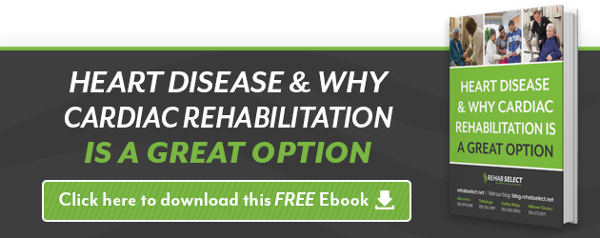
Congestive heart failure (CHF) is a condition in which the heart becomes less efficient at pumping blood. WebMD states that CHF is a condition where the “blood moves through the heart and body at a slower rate, and pressure in the heart increases. As a result, the heart can’t pump enough oxygen and nutrients to meet the body's needs.” A number of underlying conditions can cause CHF by damaging the heart muscle. Some conditions that lead to CHF can be reversed, and others can be controlled, and treatment goals generally include addressing its underlying causes, slowing progression of CHF, and improving symptoms.
According to Yale Medicine, almost 6 million Americans have congestive heart failure. But there is good news: with the correct treatment, patients can recover to good health.
What is CHF and Why Does it Occur?
Common causes of CHF include coronary artery disease, with clogged arteries slowing blood flow to the heart; myocardial infarction, commonly called a heart attack; angina; and cardiomyopathy, which is damage to the heart caused by issues other than blood flow problems, such as infections. The American Heart Association reports that “certain lifestyle factors – smoking, being overweight, eating foods high in fat and cholesterol and physical inactivity – can contribute to heart failure because they increase your risk of developing heart conditions associated with heart failure.”
The Cleveland Clinic identifies the primary conditions that can also cause CHF:
-
Coronary artery disease and/or heart attack
-
Cardiomyopathy (genetic or viral)
-
Heart issues present at birth (congenital heart disease)
-
Diabetes
-
High blood pressure (hypertension)
-
Arrhythmia
-
Kidney disease
-
A body mass index (BMI) higher than 30
-
Medications such as cancer drugs (chemotherapy)
Other causes include certain lung problems and issues in other organs. For many, the causes of CHF can be clearly identified as one or more of these conditions, but for others, the reasons for the development of this chronic heart disease are unclear.
Congestive Heart Failure Stages: Know the Common Symptoms
In its early stages, CHF may present no symptoms. As the disease progresses, however, CHF symptoms ranging from mild to severe in intensity generally begin to appear and may include:
-
Lung congestion - As heart function declines, fluid can begin to build up in the lungs, causing shortness of breath with exercise and/or breathing difficulty at rest or while lying flat, as well as a dry cough and/or wheezing.
-
Fluid retention – As kidneys receive less blood, their function can become impaired, allowing excessive fluid retention in the body. This can result in edema, which presents as swelling in the ankles, legs, and/or abdomen.
-
Fatigue, weakness, dizziness – Inadequate blood flow to the body can cause a person to feel chronically weak and tired, and reduced blood flow to the brain can cause dizziness and/or confusion.
-
Rapid or irregular heartbeat – Often, the heart will try to compensate for inefficient blood output by beating more rapidly, which can lead to a dangerously high or irregular heart rate.
Other common symptoms include:
-
Reduced ability to exercise
-
Persistent cough or wheezing with white or pink blood-tinged mucus
-
Very rapid weight gain from fluid buildup
-
Nausea and lack of appetite
-
Difficulty concentrating or decreased alertness
-
Chest pain if heart failure is caused by a heart attack
To treat heart failure, you must first seek medical help and then try to keep it from getting worse (lowering the risk of fatality and the need for hospitalization), ease symptoms, and develop a plan to improve your quality of life.
Find Rehab for Congestive Heart Failure
If you have been diagnosed with CHF, the most important step you can take to cope with this condition is to work closely with your doctor to minimize its symptoms and complications. Treatment will vary according to the underlying causes of your CHF, but one recommendation is standard: Seek rehab to help you manage the effects of this condition.
Lifestyle changes like exercise and stress management are almost always a component of CHF treatment, so your doctor may refer you to a cardiac rehab program for help and education on these matters. At Rehab Select, we have an expert medical team that can design a rehabilitation plan based on your doctor’s recommendations. With five facilities for cardiac rehab in Alabama, we are equipped to help you reach your goals and make lifestyle changes that can help you restore your health. If you’d like to find out more about how our Alabama cardiac rehab team can help you learn how to minimize your symptoms and maximize your quality of life, schedule a meeting today.





